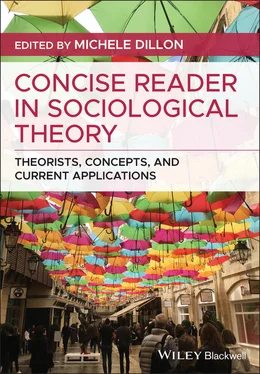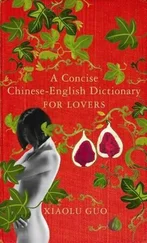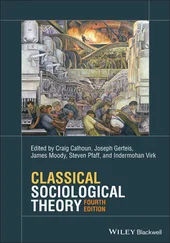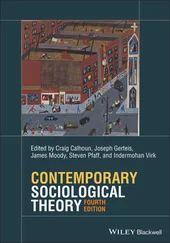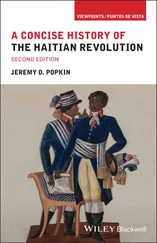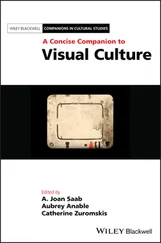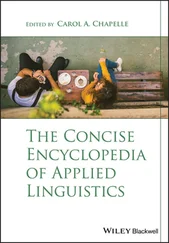This production only makes its appearance with the increase of population. In its turn this presupposes the intercourse of individuals with one another. The form of this intercourse is again determined by production.
The relations of different nations among themselves depend upon the extent to which each has developed its productive forces, the division of labour and internal intercourse. This statement is generally recognized. But not only the relation of one nation to others, but also the whole internal structure of the nation itself depends on the stage of development reached by its production and its internal and external intercourse. How far the productive forces of a nation are developed is shown most manifestly by the degree to which the division of labour has been carried. Each new productive force, in so far as it is not merely a quantitative extension of productive forces already known, (for instance the bringing into cultivation of fresh land), brings about a further development of the division of labour.
The division of labour inside a nation leads at first to the separation of industrial and commercial from agricultural labour, and hence to the separation of town and country and a clash of interests between them. Its further development leads to the separation of commercial from industrial labour. At the same time through the division of labour there develop further, inside these various branches, various divisions among the individuals co‐operating in definite kinds of labour. The relative position of these individual groups is determined by the methods employed in agriculture, industry and commerce (patriarchalism, slavery, estates, classes). These same conditions are to be seen (given a more developed intercourse) in the relations of different nations to one another.
The various stages of development in the division of labour are just so many different forms of ownership; i.e. the existing stage in the division of labour determines also the relations of individuals to one another with reference to the material, instrument, and product of labour.
[…]
The production of ideas, of conceptions, of consciousness, is at first directly interwoven with the material activity and the material intercourse of men, the language of real life. Conceiving, thinking, the mental intercourse of men, appear at this stage as the direct efflux of their material behaviour. The same applies to mental production as expressed in the language of the politics, laws, morality, religion, metaphysics of a people. Men are the producers of their conceptions, ideas, etc. – real, active men, as they are conditioned by a definite development of their productive forces and of the intercourse corresponding to these, up to its furthest forms. Consciousness can never be anything else than conscious existence, and the existence of men is their actual life‐process. If in all ideology men and their circumstances appear upside down as in a camera obscura, this phenomenon arises just as much from their historical life‐process as the inversion of objects on the retina does from their physical life‐process.
In direct contrast to German philosophy which descends from heaven to earth, here we ascend from earth to heaven. That is to say, we do not set out from what men say, imagine, conceive, nor from men as narrated, thought of, imagined, conceived, in order to arrive at men in the flesh. We set out from real, active men, and on the basis of their real life‐process we demonstrate the development of the ideological reflexes and echoes of this life‐process. The phantoms formed in the human brain are also, necessarily, sublimates of their material life‐process, which is empirically verifiable and bound to material premises. Morality, religion, metaphysics, all the rest of ideology and their corresponding forms of consciousness, thus no longer retain the semblance of independence. They have no history, no development; but men, developing their material production and their material intercourse, alter, along with this their real existence, their thinking and the products of their thinking. Life is not determined by consciousness but consciousness by life. In the first method of approach the starting‐point is consciousness taken as the living individual; in the second it is the real living individuals themselves, as they are in actual life, and consciousness is considered solely as their consciousness.
This method of approach is not devoid of premises. It starts out from the real premises and does not abandon them for a moment. Its premises are men, not in any fantastic isolation or abstract definition, but in their actual, empirically perceptible process of development under definite conditions. As soon as this active life‐process is described, history ceases to be a collection of dead facts as it is with the empiricists (themselves still abstract), or an imagined activity of imagined subjects, as with the idealists.
Where speculation ends – in real life – there real, positive science begins: the representation of the practical activity, of the practical process of development of men. Empty talk about consciousness ceases, and real knowledge has to take its place.
[…]
History is nothing but the succession of the separate generations, each of which exploits the materials, the forms of capital, the productive forces handed down to it by all preceding ones, and thus on the one hand continues the traditional activity in completely changed circumstances and, on the other, modifies the old circumstances with a completely changed activity. This can be speculatively distorted so that later history is made the goal of earlier history, e.g. the goal ascribed to the discovery of America is to further the eruption of the French Revolution. Thereby history receives its own special aims and becomes “a person ranking with other persons” (to wit: “self‐consciousness, criticism, the Unique,” etc.), while what is designated with the words “destiny,” “goal,” “germ,” or “idea” of earlier history is nothing more than an abstraction formed from later history, from the active influence which earlier history exercises on later history. The further the separate spheres, which interact on one another, extend in the course of this development, the more the original isolation of the separate nationalities is destroyed by the developed mode of production and intercourse and the division of labour naturally brought forth by these, the more history becomes world‐history. Thus, for instance, if in England a machine is invented, which in India or China deprives countless workers of bread, and overturns the whole form of existence of these empires, this invention becomes a world‐historical fact. Or again, take the case of sugar and coffee which have proved their world‐historical importance in the nineteenth century by the fact that the lack of these products, occasioned by the Napoleonic Continental system, caused the Germans to rise against Napoleon, and thus became the real basis of the glorious Wars of Liberation of 1813. From this it follows that this transformation of history into world‐history is not indeed a mere abstract act on the part of the “self‐consciousness,” the world‐spirit, or of any other metaphysical spectre, but a quite material, empirically verifiable act, an act the proof of which every individual furnishes as he comes and goes, eats, drinks and clothes himself.
The ideas of the ruling class are in every epoch the ruling ideas: i.e. the class, which is the ruling material force of society, is at the same time its ruling intellectual force. The class which has the means of material production at its disposal, has control at the same time over the means of mental production, so that thereby, generally speaking, the ideas of those who lack the means of mental production are subject to it. The ruling ideas are nothing more than the ideal expression of the dominant material relationships, the dominant material relationships grasped as ideas; hence of the relationships which make the one class the ruling one, therefore the ideas of its dominance. The individuals composing the ruling class possess among other things consciousness, and therefore think. In so far, therefore, as they rule as a class and determine the extent and compass of an epoch, it is self‐evident that they do this in their whole range, hence among other things rule also as thinkers, as producers of ideas, and regulate the production and distribution of the ideas of their age: thus their ideas are the ruling ideas of the epoch. For instance, in an age and in a country where royal power, aristocracy and bourgeoisie are contending for mastery and where, therefore, mastery is shared, the doctrine of the separation of powers proves to be the dominant idea and is expressed as an “eternal law.” The division of labour, which we saw above as one of the chief forces of history up till now, manifests itself also in the ruling class as the division of mental and material labour, so that inside this class one part appears as the thinkers of the class (its active, conceptive ideologists, who make the perfecting of the illusion of the class about itself their chief source of livelihood), while the others’ attitude to these ideas and illusions is more passive and receptive, because they are in reality the active members of this class and have less time to make up illusions and ideas about themselves. Within this class this cleavage can even develop into a certain opposition and hostility between the two parts, which, however, in the case of a practical collision, in which the class itself is endangered, automatically comes to nothing, in which case there also vanishes the semblance that the ruling ideas were not the ideas of the ruling class and had a power distinct from the power of this class. The existence of revolutionary ideas in a particular period presupposes the existence of a revolutionary class; about the premises for the latter sufficient has already been said above.
Читать дальше
